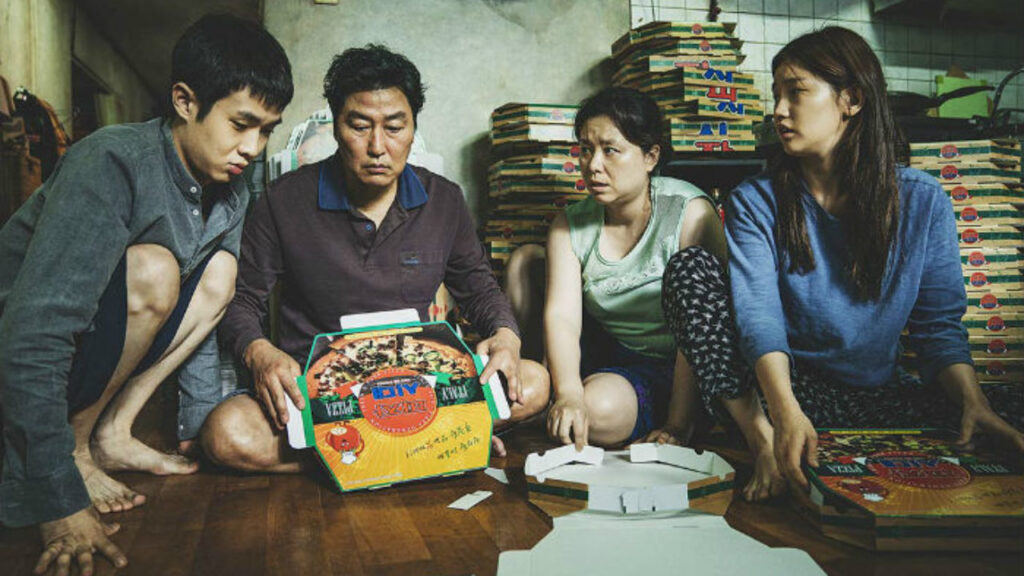For a long time, films were analysed in a one-dimensional way. Many critics conveniently brush this form of art under the umbrella of “storytelling” – and this notion itself was pretty exclusionary and naïve. Throughout the history of cinema, many filmmakers have challenged this notion by using different techniques such as symbolism, lighting, cinematography and powerful screenplays.
Parasite is a recent cinema masterpiece of today. Despite being a South Korean film which was not dubbed in any language precisely because its writers requested the distributor not to, this film made its way to the biggest stage of cinema; Cannes and Oscars.
Parasite’s director Bong Joon-Ho can engage the audience regardless of their age, ethnicity and geographical positionality. In short, he doesn’t seem to have a “target audience.” This gives a sense of inclusivity to his films which might not be rare in cinema but definitely something most filmmakers struggle with.
Classics like Memories of Murder, Okuja, and Snowpeircer were more than just outstanding movies. I say that not because they had an incredible plots and cinematography gems but they also addressed the most crucial reality of poverty, economic and racial disparity which enables the system of capitalism.
Parasite describes a dialectical relation between money and social behaviour. This movie revolves around two families who belong to a different stratum of the economy, Park and Kims.
Kims being a part of the “basement” class leads their way to Park’s lives by forging themselves as different professionals. Kims is a family of four unemployed people and who are in all sense, unemployable. They spend their days stealing neighbours’ Wifi and assembling cheap paper boxes.
The bland and mundane lives of Kims take an adventurous turn when the youngest son, Ki-woo accepts a lucrative job of an English tutor for the teenage daughter of the Park family. Seeing this as an opportunity, a sense of hope unfolds itself for Kims. They gradually take over positions like art tutor, caretaker and chauffeur. They don’t make their way to earn these positions honestly, rather they utilised every possibility to strip away the old employees.
Within no time they establish a symbiotic relationship with the Park family. Bong Ho used a persuasive tool of filmmaking to elaborate on the economic and social journey of both families i.e. symbolism. From a semi-basement apartment to a particular smell, everything showed Kims’ truth. A truth that they repetitively dodged by indulging themselves in a scam that risked their fortune and lives.
The importance of the “particular” smell was mentioned again and again by different characters at different moments. Smell represented the positionality and origin of Kims, what they are and where they belong. Bong Ho presented poverty as a smell that differentiates rich and imposters.
Bong-Ho doesn’t seem like to sentimentalise Kims’ poverty at all. He doesn’t present them as nice, helpless people waiting for a saviour. A dialogue exchanged between Choong-sook (played by Jang Hye-jin) and Kim Ki-taek (played by iconic Kang-Ho Song) explained the whole un-empathetic take on poverty.
“They’re rich but nice people,” said Ki-Taek. In an answer to this, Choong replied, “They’re nice because they are rich.”
The movie takes a turning point when the Park family goes on a trip with their extravaganza essentials. As the real owner is gone, Kims decide to bring the booze out and enjoy every bit of that momentary freedom. All of this enjoyment trickles down when the old housekeeper returns and brings surprises with her.
Till now you; as a spectator are constantly amazed by the efficiency of Kims’ deceptive plans which will eventually crumble down after a series of unexpected events unfolding in just one night
Marxist philosopher ZizeK explains this as a dilemma of “modern immigrant crisis.” We believe that the poor are an innately reluctant and helpless creatures who constantly need guidance to move forward. No matter how tough circumstances get, they should always be tolerant and diligent. This image infuriates us when we see angry mobs lurking at food trucks. We see them with the lens of prejudice and pity which makes us indifferent to their pain and struggle.
The Students’ Herald News Desk focuses on reporting the latest news regarding student politics and campus updates to you.
The News Desk can be reached at admin@thestudentsherald.com




